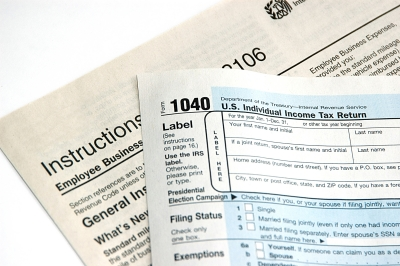Some taxpayers might feel that they don't need to keep their income tax documents unless they have particularly complex tax situations. The reality is that all taxpayers should keep their essential tax documents on file. Depending on your circumstances, you may need to keep your records for several years, in case of an audit or to back up a claim.
IRS Tax Documents: What to Keep and How Long
What is a Declaration Control Number?
Since the IRS released the electronic filing, or e-filing, method for submitting federal income tax returns, the popularity of the practice has grown considerably. In fact, the agency is now encouraging as many taxpayers as possible to file electronically to cut down on the amount of paperwork involved in the process and to speed up the turnaround time for refunds. Declaration Control Numbers (DCNs) were originally a vital part of e-filing, serving as an electronic method of identifying returns, but the IRS has since discontinued use of them in favor of a streamlined e-filing process.
Which Tax Bracket are You In? How to Find Out
Around tax time, many citizens start wondering about their applicable tax bracket. While it may seem that the IRS randomly assigns tax brackets to certain individuals, the agency actually uses a straightforward method to calculate the appropriate tax rate for each citizen. It's important for individuals to understand the tax bracket to which they belong. This knowledge will help taxpayers prepare to pay their incoming tax bill. Learning to figure your tax bracket may also help you to find ways to reduce your tax rate for next year.
Taxpayer 101 for New Graduates
A college graduate has a lot to be excited about, including finishing school, finding a new job, or even moving out of his or her parents’ house. However, the excitement of jumping in to a new career can quickly diminish once a graduate has to pay his or her first tax bill. Instead of waiting until tax time to find out how much you'll owe, it's wise to learn about potential tax issues in advance so that you can prepare to pay your taxes in the future.
How to Reduce the Size of Your Taxable Estate
Identity Theft Advice for Taxpayers
Identity theft has become a worldwide problem, affecting many consumers and damaging their credit scores, their bank accounts, and even their employment. But did you know that identify theft can also cause trouble for you at tax time? Unfortunately, falling victim to identity thieves can make tax filing a real hassle, especially if you're expecting a sizable refund. Here's a primer on what you can do if identity theft interferes with your tax filing.
Are Gambling Winnings Taxable by the IRS?
What is an IRS Enrolled Agent?
If you're facing tax trouble such as a review or an audit, you may be wondering where you can turn for assistance. Many taxpayers are familiar with tax professionals such as certified public accountants (CPA) and tax attorneys, but another valuable resource for tax assistance is an IRS enrolled agent (EA). Enrolled agents are highly trained and qualified to provide tax advice and help for just about any possible situation.
IRS Tax Facts about Foreign Earned Income Exclusion
Individuals who have immigrated to the United States must abide by the IRS rules for resident and non-resident aliens. While there are special considerations for these individuals who file tax returns, they are still required to submit their returns on the annual deadline along with naturalized U.S. citizens. The IRS allows for three categories of immigrants: resident aliens, non-resident aliens, and dual status taxpayers. Choosing the proper tax status is important because it directly affects the way immigrants file their returns.
SUBSCRIBE VIA EMAIL
POSTS BY TOPIC
- Tax Tips and Help (283)
- IRS Collections (121)
- IRS Audit (72)
- Tax Credits and Deductions (70)
- Tax Resolution (62)
- Business Taxes (54)
- Back Taxes (48)
- Wage Garnishment (20)
- Tax Levies (19)
- IRS Payment Plans (15)
- Tax Liens (14)
- Offer in Compromise (9)
- Unfiled Tax Returns (9)
- IRS Tax Attorneys (7)
- Asset Seizure (6)
- Tax Evasion (6)
- Criminal Tax Defense (4)
- Innocent Spouse Relief (4)
- Alimony (1)











